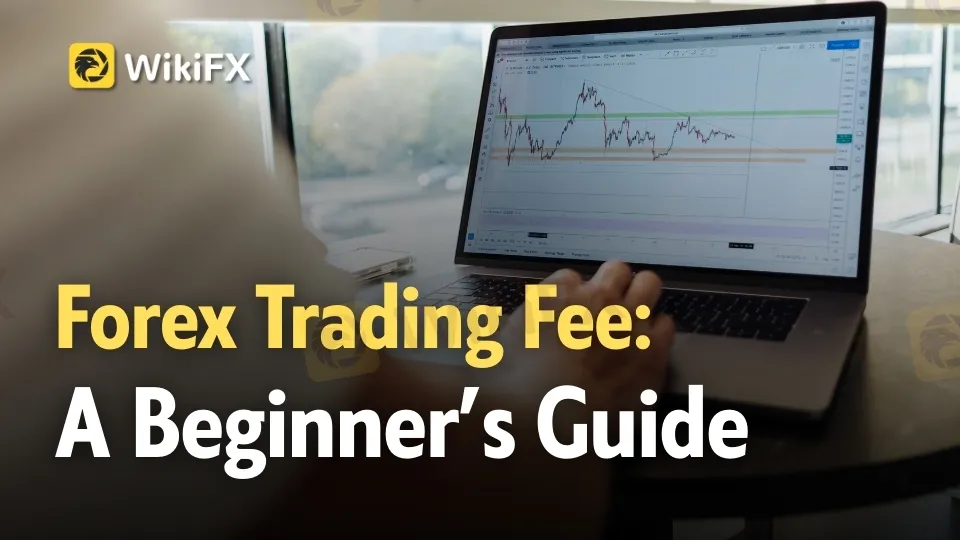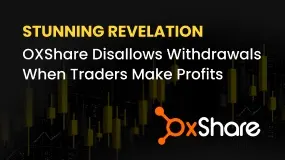简体中文
繁體中文
English
Pусский
日本語
ภาษาไทย
Tiếng Việt
Bahasa Indonesia
Español
हिन्दी
Filippiiniläinen
Français
Deutsch
Português
Türkçe
한국어
العربية
What Is Forex Trading Fee? A Beginner’s Guide
Abstract:Understand forex broker fees and trading costs in detail. Explore fee comparisons, learn to reduce expenses, and maximize your profitability with practical forex trading tips.

Forex trading offers exciting opportunities for investors to profit from currency price movements globally. However, understanding the costs associated with forex trading is crucial for maximizing profitability. The term “forex trading fee” encompasses several types of fees and charges that traders incur when buying and selling currencies. These fees directly impact your trading profits and should be carefully considered when choosing a broker and executing trades.
This comprehensive guide explains the various forex trading fees, compares popular brokers fee structures, and offers practical tips to help you minimize costs and maximize your returns. Whether you're a beginner starting your forex journey or an experienced trader looking to optimize expenses, this article covers everything essential about forex trading fees.
What Is Forex Trading Fee?
A forex trading fee refers to the amount charged by brokers and financial institutions for facilitating currency trades. These fees compensate brokers for providing access to the forex market, maintaining trading platforms, and offering services such as execution, data feeds, and account management.
Unlike traditional stock trading fees, forex trading fees are typically embedded in the bid-ask spread or charged as explicit commissions. Additionally, traders may encounter overnight financing costs and account-related fees. Understanding all these fee types helps traders keep costs manageable and avoid surprises.

Types of Forex Trading Fees
1. Spreads
The spread is the most common forex trading fee and represents the difference between a currency pairs buy (ask) price and sell (bid) price. For example, if the EUR/USD bid price is 1.2000 and the ask price is 1.2005, the spread is 0.0005 or 5 pips.
Brokers make money from this difference. The tighter (smaller) the spread, the lower your transaction cost. However, spreads can vary based on market liquidity, volatility, and broker type.
- Fixed spreads stay constant regardless of market conditions.
- Variable spreads fluctuate depending on market activity and volatility.
Spreads are particularly important for day traders and scalpers who execute many trades and rely on tight spreads to maintain profitability.
2. Commissions
Some brokers charge commissions instead of or in addition to spreads. This is a fixed or percentage-based fee per trade, often charged per standard lot traded.
Commission-based models typically offer tighter spreads, which can reduce total trading costs for high-frequency traders. However, commissions can add up quickly, so it's important to factor them into your strategy.
3. Overnight Financing Fees (Swap Fees)
When you hold a position overnight, brokers charge or credit an overnight financing fee, also known as a swap fee. This fee reflects the interest rate differential between the two currencies traded.
- If you hold a currency with a higher interest rate, you may receive a credit.
- If you hold a currency with a lower interest rate, you pay a fee.
Overnight fees compound if positions are held open long-term, so it is vital for swing and positional traders to monitor these costs.
4. Account-Related Fees
Besides trading costs, there can be other fees associated with your trading account, such as:
- Inactivity fees: Charged if no trades occur within a specified period.
- Deposit/withdrawal fees: Costs for funding or withdrawing money from your account.
- Currency conversion fees: When your account currency differs from the withdrawal currency.
- Subscription fees: Charges for premium market data or advanced platform features.
How Forex Trading Fees Affect Profitability
Forex trading fees reduce the net gains from your trades. Even seemingly small costs, like a few pips in the spread, can significantly impact overall profitability, especially in high-frequency trading or with tight profit targets. For example:
- A 1 pip spread on EUR/USD equals roughly $10 per standard lot.
- If your trading strategy targets a 5-pip gain, a 1-pip spread consumes 20% of your profit potential.
Holding positions overnight with swap fees will further reduce profits or increase losses if the fee is negative.
Therefore, understanding and managing these fees is critical to successful forex trading.
Comparing Forex Broker Fee Structures
Forex brokers differ widely in how they charge fees, and choosing the right broker involves comparing their fee structures, services, and reputation. Below is an overview of typical fee structures among popular brokers:
| FP Markets | Fixed/Variable | From 0.0 pips raw | $6 per round trip (Pro account) | Yes | No inactivity fee | Tight spreads, multiple account types |
| IC Markets | Variable | From 0.0 pips raw | $6–$7 per round trip | Yes | No inactivity fee | ECN broker, popular with active traders |
| Pepperstone | Variable | From 0.0 pips (Razor) | $7 per round trip | Yes | No inactivity fee | Razor accounts offer lowest spreads + commissions |
| AvaTrade | Fixed/Variable | From 0.9 pips | $0 | Yes | $10 monthly inactivity fee after 2 months | One of the few with swap-free accounts for Islamic traders |
| ActivTrades | Variable | From 0.5 pips | $0 | Yes | No inactivity fee | No deposit minimum, good for beginners |
| Interactive Brokers | Variable | From 0.1 pip | From $0.08 per 1k USD lot | Yes | One free withdrawal monthly | Best for advanced traders seeking low commission |
This table highlights that brokers offering zero commissions often charge wider spreads, while those with tight spreads typically impose commissions. Overnight fees vary but are standard in most brokers. Also, inactivity and withdrawal fees can add costs if the account is inactive or frequently funded/withdrawn.
Tips for Minimizing Forex Trading Fees and Maximizing Profits
1. Choose the Right Broker
- Compare spread and commission costs for your preferred currency pairs.
- Look for brokers with transparent fee disclosures.
- Consider brokers with no inactivity fees or low deposit/withdrawal costs.
- Use regulated brokers with good reputations to avoid hidden fees.
2. Trade Major Currency Pairs
Major pairs like EUR/USD, GBP/USD, and USD/JPY tend to have tighter spreads and higher liquidity, which reduces your spread cost.
3. Optimize Trading Time
Trade during the most liquid market hours (London and New York sessions), when spreads are narrower.
4. Monitor Overnight Fees
Avoid holding positions overnight if swap costs are high or use swap-free accounts if available and compatible with your trading style.
5. Use Limit Orders
Market orders execute immediately at the worst available price, potentially increasing slippage and spread costs. Limit orders allow you to specify the price to control costs better.
6. Manage Trading Frequency
Avoid overtrading. Frequent trades with commissions and spread costs can erode profits.
7. Review Account Activity
Avoid inactivity fees by maintaining minimal trading activity within your brokers required period.
Real-World Examples
- A trader using Pepperstones Razor account trades one standard lot EUR/USD with a 0.1 pip spread and $7 commission per round trip. The total trading cost equals $8 (spread) + $7 (commission) = $15. This low-cost arrangement suits high-frequency traders.
- Conversely, a trader using a spread-only broker with an average 1.2 pip spread on EUR/USD but no commissions pays about $12 per standard lot per trade, but might save on commission costs with fewer trades.
- Traders holding a long USD/JPY position overnight might earn swap credits if the US interest rate is higher than Japans, boosting profitability, but should monitor to avoid negative swaps on opposite trades.
In summary, the forex trading fee you pay—comprising spreads, commissions, overnight fees, and account-related charges—directly impacts your trading profitability. Choosing a broker with favorable fees aligned to your trading style, trading major pairs during liquid times, and using cost-saving strategies can help optimize your forex trading journey.
Whether you are new or seasoned, always factor in all fees before initiating trades and regularly review your trading costs to adjust your strategies accordingly. Understanding forex trading fees is not just about reducing expenses; its about managing your trading business effectively to achieve consistent success.

Disclaimer:
The views in this article only represent the author's personal views, and do not constitute investment advice on this platform. This platform does not guarantee the accuracy, completeness and timeliness of the information in the article, and will not be liable for any loss caused by the use of or reliance on the information in the article.
Read more

Scam Alert: Know the Risky Side of InstaForex in India
you should always Scam Alert in forex market. If something seems too good to be true, it often hides red flags behind it. Therefore, We reviewed InstaForex and reveal hidden risks associated with it. Whether you are an Indian trader, a potential user, or an existing client, it is crucial to understand the risks associated with InstaForex .

Going to Invest in FXCL? Move Back to Avoid Scams & Losses
Are FXCL officials calling you to make you a customer by promising a magical profit number? Stop! These officials follow this route to onboard customers and make them deposit at regular intervals. However, when you wish to withdraw, the officials will deny your request. This is nothing but a strong indicator of a scam forex broker. In this article, we will expose the wrongdoings of this Botswana-based broker.

Stunning Revelation: OXShare Disallows Withdrawals When Traders Make Profits
The revelation that OXShare disallows withdrawals to traders when they make profits is stunning but true. Many traders have complained about it on forex broker review platforms, but to no avail. They may receive assurances, but company officials do not live up to their promises. What’s more, these officials manipulate trades, forge vital details, and eventually scam traders who put their hard-earned capital on it. In this article, we will expose OxShare with proof. Read on to check them.

WikiFX Broker Assessment Series | Windsor Brokers: Is It Trustworthy?
In this article, we will conduct a comprehensive examination of Windsor Brokers, delving into its key features, fees, safety measures, deposit and withdrawal options, trading platform, and customer service. WikiFX endeavours to provide you with the essential information required to make an informed decision about utilizing this platform.
WikiFX Broker
Latest News
Join WikiFX’s Agent Growth Event | Turn Your Success into a Global Achievement
Forex Trends Explained for Your Successful Trading Experience
Do Kwon Faces 130-Year Prison Sentence After Guilty Plea in $40B Crypto Collapse
Best 5 Low-Spread FX Brokers in India 2025
Major Pairs in Forex: Top Traded Currency Insights
What is ECN in Trading? A Simple Guide
SEC Settles California Trader with Over $234,000 Spoofing Scheme
What Is Forex Trading Fee? A Beginner’s Guide
Understanding UAE’s Financial Market Regulation: SCA and DFSA
Scam Alert: Know the Risky Side of InstaForex in India
Currency Calculator


